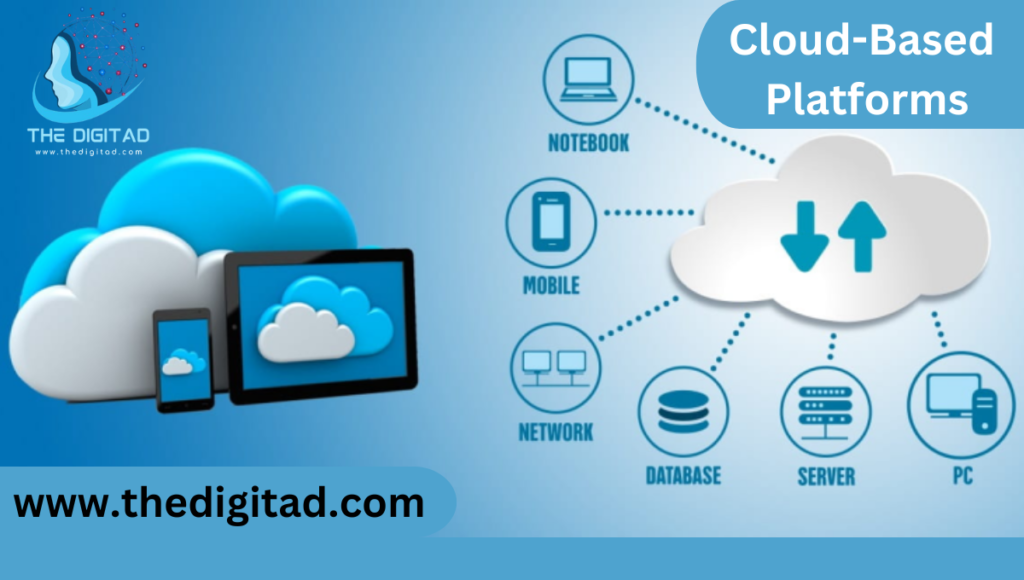Financial Technology ERP Implementation: Revolutionizing Business Operations
Financial technology ERP implementation is redefining the way businesses manage financial and operational processes. It brings together advanced financial technology and Enterprise Resource Planning (ERP) systems for simplified, high accuracy, and real-time insights pertaining to the workflow. Financial operations and enterprise management are integrated to achieve greater efficiency and scalability. This article delves into the importance, features, and challenges of financial technology ERP implementation, providing actionable insights for organizations considering this transformative integration.
What is Financial Technology ERP Implementation?
This financial technology ERP implementation integrates fintech innovations, like the introduction of digital payment systems, automated accounting, and predictive financial analytics, into the platforms. The essence of using ERP is to manage business processes across departments; fintech tools augment financial operations. In unison, it creates a whole platform simplifying complex tasks-from transaction management to compliance monitoring.
The implementation of this will not only be a mere technical change for businesses but rather a strategic one, combining the energies of financial technology along with ERP systems to offer a smooth operational framework.
Key Reasons to Adopt Financial Technology ERP Implementation
Organizations adopt financial technology ERP implementation for several compelling reasons.
1. Operational Efficiency
Automates repetitive tasks and saves time while reducing errors.
2. Immediate Access to Financial Data
Enables effective decision-making using real time critical financial data.
3. Increased Compliance
Disposes automated reporting to enable easy compliance with regulatory standards.
4. Cost Management
Streamlines processes to achieve better resource costs and effective help towards low operational costs.
Integrating fintech tools into ERP systems gives businesses a competitive edge in today’s fast-evolving market.
Procedures for Implementing ERP in Financial Technology
The successful implementation of financial technology ERP involves several steps.
1. Needs Assessment
Identify gaps in current processes. Evaluate how fintech tools can address these challenges within the ERP framework.
2. Selecting the Right ERP System
Choose a system compatible with fintech tools. Consider factors like scalability, user interface, and industry relevance.
3. Data Preparation and Migration
Your task will be to cleanse, organize and migrate, existing data to the new system. Throughout the procedure, make sure the data is accurate.
4. Customization
Adapt the system to certain operational and financial requirements. Include financial elements like blockchain or analytics driven by AI.
5. User Training
Instruct staff in the use of the new system for effective usage. Continuous support must be provided to smooth the transition.
6. Testing and Deployment
Thoroughly test the system in a controlled environment. Once satisfied, roll it out across the organization.
7. Post-Implementation Support
Monitor system performance. Address issues promptly and refine the system as needed.
Top Features of Financial Technology ERP Systems
A financial technology ERP system offers advanced features to optimize business processes.
| Feature | Benefits |
| Automated Financial Reporting | Minimizes manual labor and guarantees precision. |
| Predictive Analytics | Helps with strategy planning and trend forecasting. |
| Blockchain Integration | Enhances transaction security and traceability. |
| Cloud Accessibility | Enables remote access and scalability. |
| Multi-Currency Support | Facilitates global business operations. |
| AI-Powered Insights | Analyzes data for actionable recommendations. |
These features simplify financial management while providing insights into business performance.
Additional Strategies for Implementation Success
Involve Stakeholders
Include all the key stakeholders during the preparation process.Their feedback guarantees that the system satisfies organizational requirements.
Pilot Programs
Conduct pilot tests before full scale implementation. This way assists in the identification and resolution of problems that may arise.
Choose Scalable Solutions
Select ERP solutions that are scalable to your company’s needs. Scalability ensures long term value.
Prioritize Cybersecurity
Fintech tools require robust data protection measures. Put encryption, firewalls, and frequent security audits into practice.
Embrace Change Management
Guide employees through the transition. Adoption goes more smoothly and opposition is decreased with effective change management.
Challenges in Financial Technology ERP Implementation
Despite its advantages, financial technology ERP implementation comes with challenges.
- Cost Implications: The initial investment can be high for small businesses.
- Complex Integration: Merging fintech tools with ERP systems can be intricate.
- Employee Resistance: Staff may be hesitant to adopt new technologies.
- Data Security Risks: Integration increases vulnerability to cyber threats.
- Downtime: The implementation phase may disrupt daily operations temporarily.
Organizations must plan meticulously and allocate resources effectively to overcome these challenges.
Advantages of Financial Technology ERP Implementation
| Enhanced Accuracy | Automated processes help eliminate error in all kinds of financial calculations as well as reporting or compliance. |
| Streamlined Workflows | Integrates processes across departments, ensuring smoother collaboration. |
| Better Resource Allocation | Improves visibility into resource utilization leading to cost saving. |
| Competitive Edge | It offers tools for further improved future trend prediction and decision making. |
| Scalability | It facilitates the advancement of operations by accommodating the increased business requirements with very few renovations to major systems. |
| Customer Satisfaction | Facilitates faster transactions and personalized financial service, improving client relationships. |
Future of Financial Technology ERP Implementation
The future holds exciting possibilities for financial technology ERP systems.
Increase Business Functions through AI Integration

The incorporation of artificial intelligence into ERP systems will enhance these systems’ predictive analytics and automated decision making. As a result, organizations will benefit from better, more intelligent financial projections as well as the removal of errors from operational procedures.
Blockchain Expansion
Blockchain technology will ensure secure and transparent financial transactions. Its adoption in ERP systems will help simplify compliance and improve data integrity.
Cloud-Based Platforms
Cloud-Based Platforms

Cloud ERP solutions will be predominantly used because of their scalability and cost efficiency. Access to advanced ERP tools will be expanded toward small business setups.
IoT Compatibility
Internet of Things devices will work in an interoperable manner with the ERP system. This will provide real time data collection and improved process monitoring across industries.
Globalization and Multi-Currency Support
Future systems will cater to diverse regulatory requirements and facilitate global operations with advanced multi currency handling capabilities, making ERP systems indispensable for international businesses.
The future of financial technology ERP implementation promises smarter, faster, and more secure solutions.
Use Cases for Financial Technology ERP Systems
E-Commerce
Enhance payment processing, inventory tracking, and customer data analytics.
Manufacturing
It is making supplier management, tracking production costs, and compliance reporting simpler tasks.
Financial Services
Streamline client transactions, portfolio management, and fraud detection.
Healthcare
Integrates billing systems, tracks expenses, and ensures regulatory compliance.
FAQs on Financial Technology ERP Implementation
1. Define the financial technology ERP implementation?
It integrates fintech tools like digital payments and analytics into ERP systems for streamlined operations.
2. Why is it essential for businesses?
This serves to enhance efficiency, accuracy, and decision-making, in addition to supporting scalability and compliance.
3. What is the cost then?
As a general rule, the more complex a system is the more features needed the larger the company the more it costs, but there are options for scaling at all price levels.
4. How long does implementation take?
Depending on system requirements and organizational needs, the procedure may take three to twelve months.
5. Can small businesses benefit?
Yes. Scalable and affordable ERP systems make financial technology accessible to small and medium enterprises.
6. What security measures are necessary?
Firewalls, encryption, regular audits, and employee training will help protect sensitive information.
Conclusion
Consequently, nowadays, financial technology ERP implementation becomes a transformation within business. Melding the innovation of fintech with ERP systems has, therefore, made it a device unmatched in efficiency and accuracy. Despite challenges, proper planning and execution ensure successful implementation. Fintech ERP systems have limitless potential thanks to developments in AI, blockchain, and IoT, making them a vital component of companies that are prepared for the future.
Read more Articles About Tech Trends and other Categories at The Digit Ad



















Post Comment